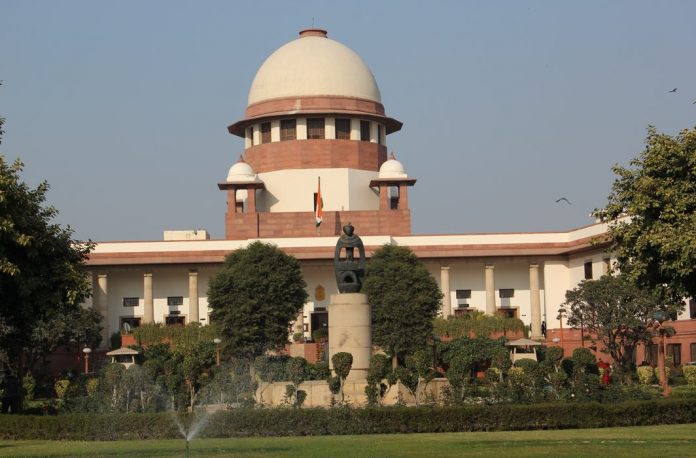The Supreme Court on Tuesday was informed by the Centre that interest waiver was not considered by the government as it would lead to wiping out of a major share of the bank’s net worth and will raise serious questions about the survival of banks.
A three-judge Bench headed by Justice Ashok Bhushan heard the plea filed seeking extension of loan moratorium in the wake of the pandemic along with sector-specific pleas. The Apex Court today heard the Union Government’s stand on the pleas filed regarding the moratorium on loan repayment and interest levied by the Reserve Bank of India (RBI) amid the Covid-19 pandemic and will continue hearing the RBI’s stand tomorrow.
The Court was informed that the Centre opposes any further relief to power Gencos and developers, saying that most petitioner associations’ are suffering from legacy issues that are due to pre-Covid factors and whatever could have been done for the power sector, has already been done.
During the hearing today, Solicitor General Tushar Mehta submitted that waiver of interest is never the solution in any economy and providing thrusts for boosting various sectors is the right way to proceed. Several Credit Guarantee schemes have already rolled out for getting MSMEs back on their feet. Many bigger corporates had issues prior to Covid and Covid might have aggravated them. There are many defaulters who were defaulters much before Covid-19 came into the picture.
The RBI’s circular had clarified itself that repayment schedule of loans has also the residual tenor which was shifted for three months, which is only a deferment, and not a waiver. The moratoriums can never mean waiver, as that can have a disastrous effects on the economy.
While elaborating on the steps that have been taken to uplift the economy during Covid, SG Mehta added that the Indian economy cannot stand the strain of the loss of Rs 6 lakh crore which will be the cost of a full waiver.
Taking about sector-specific reliefs, Mehta submitted that all conceivable sectors affected by Covid-19 have been taken into consideration, and if any sector specific issues persist, RBI can be approached but relief under Article 32 is not maintainable. The Centre has already handled all sectors, and the present case does not require the Court to go into its writ jurisdiction.
Justice Bhushan responded to Mehta stating that nobody is saying that nothing has been done, their submission is just that something more is required to be done.
SG Mehta clarified that the government realises that there is a problem and there has to be a solution which has to be sector specific, but this needs to be done institutionally and within frameworks provided.
The Bench assured Mehta that the Court will not pass an order which will lead to the economy going haywire.
SG Mehta submitted that it will be wrong to say that NDMA has not done anything. With regards to disaster management, the overall coordination is with the Home Ministry which coordinates with nodal agencies that are specific to disaster management. The effect of Covid-19 was of such nature that it could not be dealt by one Ministry. All the written decisions are taken with approval of the Prime Minister, who is the Chairman of NDMA.
Senior Advocate VV Giri, appearing on behalf of the Reserve Bank of India, submitted that persons affected by Covid-19 stress have a prudence framework available to them. Each of the lending institutions need to have a policy and the discretion of every resolution plan has to be with the bank and not with the borrower.
Also Read: Supreme Court defers plea of 94-year-old woman seeking to declare 1975 Emergency as unconstitutional
The Court had previously asked the Central government why credit-card users should be entitled to the benefit of compound interest waiver under RBI loan moratorium scheme even when they are not availing loans and only using the card to purchase goods.


